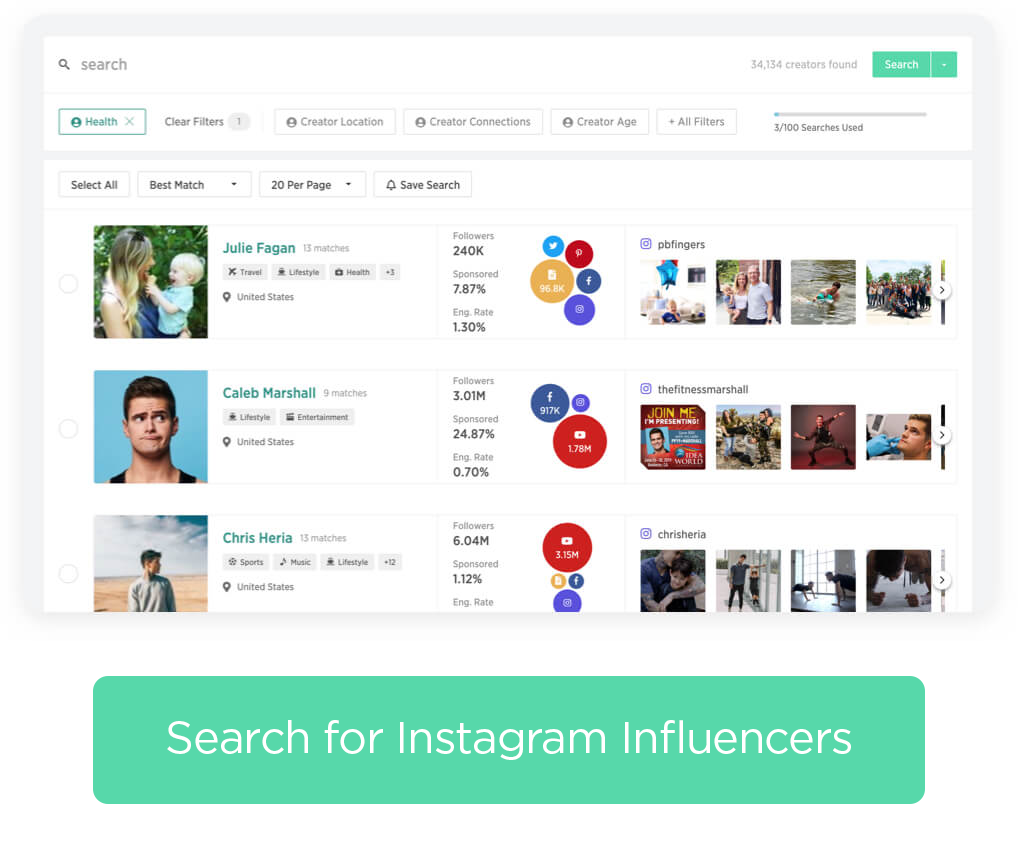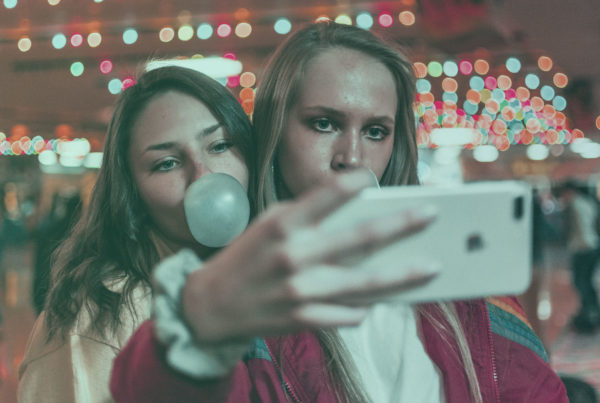Influencers have always been on the scene, molding and shaping public opinion. But the advent of social media has introduced a new type of influencer to the world of marketing and advertising. What is an influencer in today’s market? The answer is both simple and not-so simple. It’s a working definition that’s undergoing constant revision as the social media landscape evolves.
The most all-inclusive definition of an influencer is a person who has the ability to influence others. So, a politician making a speech, a business expert leading a seminar, and a celebrity endorsing a product are all technically influencers.
But in the world of modern marketing, an influencer has a more specific description. A social media influencer is a person with the ability to help your brand gain exposure and sales among their online followers.
What criteria must a person meet in order to be considered an influencer? What common traits do influencers share? What is the difference between an influencer and a celebrity? We’ve rounded up answers to these questions and more.
Defining a Social Media Influencer
These days, when people refer to “influencers,” they’re most likely pointing to people who have large followings on social media within a particular niche. Here are some definitions of “influencer” from various online authorities:
- “Someone who has the power to influence the perception of others or gets them to do something different … someone who helps other people buy from you.” (Forbes)
- “An individual who has the power to affect purchase decisions of others because of his/her authority, knowledge, position or relationship with his/her audience.” (Influencer Marketing Hub)
- “A real, relatable person who has attracted a loyal following on their blog or social media channels … by inspiring others to follow them, they’ve earned the power to move those followers to action.” (Tap Influence)
- “Individuals who have the power to affect purchase decisions of others because of their (real or perceived) authority, knowledge, position, or relationship.” (Business Dictionary)
 A social media influencer might be (but usually isn’t) a household-name celebrity. More likely, the influencer is well known within a specific industry, such as photography, fitness or finance, but may also be largely unknown outside that niche.
A social media influencer might be (but usually isn’t) a household-name celebrity. More likely, the influencer is well known within a specific industry, such as photography, fitness or finance, but may also be largely unknown outside that niche.
On the flip side, not everyone and anyone with a brand on social media is considered an influencer. Here are a few criteria that must be met in order for someone to blip on the influencer radar.
Influencers reach a target audience
Some influencers have tens of thousands of followers across their social media accounts, while others have only a few hundred. Regardless of how far their reach extends, influencers have the power to impact those who follow them. When they say, “I like it,” then their followers think, “I’ll probably like it too.”
Because influencers don’t usually operate across multiple verticals, they have a targeted audience, which is extremely helpful to marketers trying to reach a certain segment or demographic. Micro-influencers with smaller followings tend to have more targeted audiences as well as higher engagement rates.
Influencers offer niche expertise
Influencers demonstrate this expertise by the original content they create and share. Because this content comes directly from the influencer, whether it’s a recipe, a knitting pattern, or a budgeting workbook, the consumers who find it valuable consequently build a relationship with the source. The more consistently the influencer offers quality content, the more authority the influencer builds, resulting in a solid reputation as “someone” in the field.
Influencers earn their audience’s trust
Influencers earn a reputation for providing information and recommendations that their followers love. When thousands of people have cooked multiple recipes offered by a foodie influencer and rated those recipes with high stars, they are very likely to take that influencer’s recommendations when it comes to food brands, kitchen appliances, meal subscriptions, cookbooks and other tools of the trade.

Data confirm this. A McKinsey study found that recommendations by trusted influencers have four times the purchasing impact than a regular recommendation.
Influencers are, rightfully, very protective of the trust they build with their audience. Their fans expect them to be authentic, and if they think the influencer is recommending your brand solely because they’re being paid, then it chips away at that trust and becomes counterproductive.
Influencers can engage the audience
An influencer may know a lot, but the individual still needs the ability to advocate, sell and drum up enthusiasm. Influencers should have high engagement rates with their audience, and they take a hands-on approach with their people, always looking to serve their needs and better understand them.
They create great content, but they also get people to react to their content and make decisions based on that content. An Experticity study found that 82 percent of consumers are highly likely to follow a micro-influencer’s recommendation on what to buy.
Influencers love to educate and motivate their audiences toward a goal. They are often trendsetters and early adopters of new technology, and they love to share their experiences trying the latest and greatest. Influencers also tend to have personal charisma and draw.
Influencer Marketing vs. Celebrity Endorsement
Because some influencers are also celebrities, it’s easy to confuse influencer marketing with celebrity endorsement. There is a difference.
Celebrities enjoy widespread, cross-industry fame, and brands associate themselves with that fame in an effort to reach celebrities’ fans. For example, Kim Kardashian wearing clothing made by a certain designer is celebrity endorsement.

An influencer typically isn’t a household name, so the influencer creates original content that advocates for the brand. For example, influencer marketing is a fashion blogger creating an outfit that beautifully highlights a designer handbag and then posting a photo of the ensemble on Instagram. The outfit includes the product but also reflects the fashionista’s signature style so the whole effect comes off as natural and authentic.
Great influencer partnerships happen when the brand gives the influencer enough creative freedom to take the brand’s product and either create something with it or use it in a practical or fun way. One example is a food blogger featuring a brand’s food in an original recipe. Another is a fitness YouTuber showing how her high-tech smartphone case can project a workout video onto the wall so she can follow the routine without squinting down at her phone screen. The sponsored content is true to the advertised product but also to the influencer’s personal brand. What’s more, it also speaks to the audience by meeting a need or solving a problem.
Many times, celebrity endorsements are overtly artistic or aspirational, displaying what, for many onlookers, is unattainable. On the other hand, influencers are “real people,” and their followers can easily see themselves wearing the same clothes, laughing at the same jokes, or eating at the same restaurants. Seventy percent of millennials would rather get product recommendations from influencers rather than celebrities.
Influencer Marketing Laws
There is a legal component to the definition of an influencer. When a brand compensates an influencer or facilitates the influencer’s content, the Federal Trade Commission requires the influencer to disclose the partnership in accordance with truth-in-advertising standards.
Although an influencer marketing campaign differs from the traditional paid advertising techniques of the past, it’s still subject to some of the same laws. Both parties should brush up on the most recent FTC guidelines that pertain to influencer marketing to ensure that everything stays on the up-and-up.





